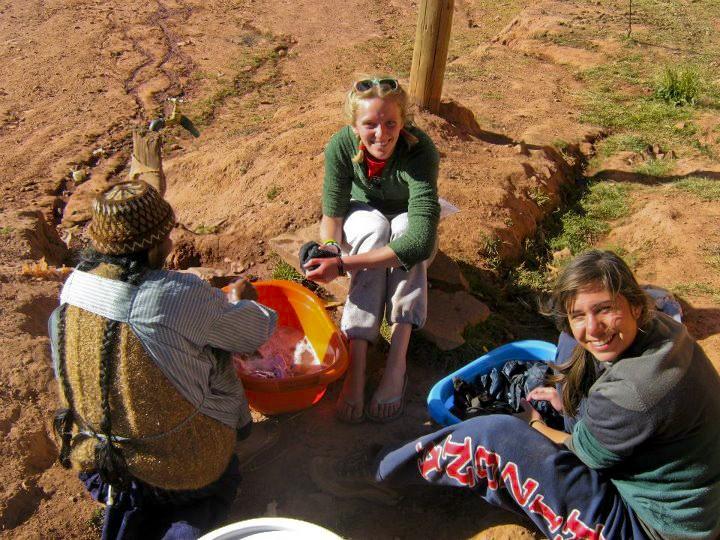Few clubs on campus have to deal with diseases and terrorist organizations, but for members of the UA’s chapter of Engineers Without Borders, issues such as these are worth the risk.
The chapter, which was formed in 2005, just three years after the organization was officially established nationwide, uses engineering to improve water infrastructure for villages in developing areas. Local members have traveled to Ghana, Mali and Bolivia to provide solutions to the local communities, according to Chelsea Kestler, a hydrology senior and the club’s project manager.
Connecting with communities in other countries is done at the organization’s national level. Chapters then bid for each project by explaining their skillsets and qualifications, and how they can solve a particular issue in a given location.
Once a chapter takes on a project, the commitment lasts five years, Kestler said. The chapter’s latest project in Marquirivi, Bolivia, began last fall, and aims to address the area’s poor plumbing system and provide locals with showers and latrines. Several club members visited the village for two weeks at the beginning of the summer to test and survey the area as part of the project’s first phase. Currently, the group is designing the solution they plan to implement, and will return in about a year to construct and install it.
Past projects have included a trip to Mafi Zongo, Ghana in 2005 to improve the area’s water treatment and distribution, according to Patrick Mette, a former club officer and environmental engineering graduate student. The project served about 30 communities and 10,000 people total.
Despite the club’s goal to remain involved with each project for five years, some projects get cut short for security reasons, as was the case for the club’s rainwater harvesting project in Mandoli, Mali, where a terrorist organization arrived during the design phase, preventing any further travels to the area.
“Once the Taliban show up, there’s not a lot you can about that,” Kestler said. Mette later confirmed that it had been Al-Qaeda.
Unrelated to the security dangers, club members said that jumping into the cultures of a developing country can be a nerve-wracking and stressful experience, though it can vary from person to person.
“Some people have done it before and are really adventurous and they can just hop right into a new place that they’ve never been and feel comfortable,” Mette said.
Kestler added that much of the time spent abroad is used to build a trusting relationship with the community the club is working in, which is a necessary but often difficult aspect.
“We’re trying not to just be engineers,” Mette added. “We’re also trying to act as, I guess, ambassadors, and develop a relationship with the communities.”
While the club’s primary focus is developing infrastructure in other countries, they stay busy while they’re at home, volunteering with organizations like Habitat for Humanity, and have built houses in Agua Prieta, Mexico in collaboration with Agua Prieta Family Shelters, a non-profit organization that provides housing to people living in poor conditions throughout the area. Additionally, the club, which funds all of its projects internally, runs various fundraising events and writes grants between its work on projects.
“Working with EWB has given me an opportunity to see firsthand what works, what doesn’t, and to kind of start going along this path where I can figure out how to spend my life improving the world,” he said. “It’s been a really good learning experience.”
Kestler said that the idea of improving the world is the main inspiration for everyone involved with the club.
“It’s fantastic to travel and go and see new cultures, and you get to feel good about what you’re doing,” she said. “But also it’s kind of really a refreshing group of people that we have in EWB … We’re all like-minded and want to just make the world a better place.”









